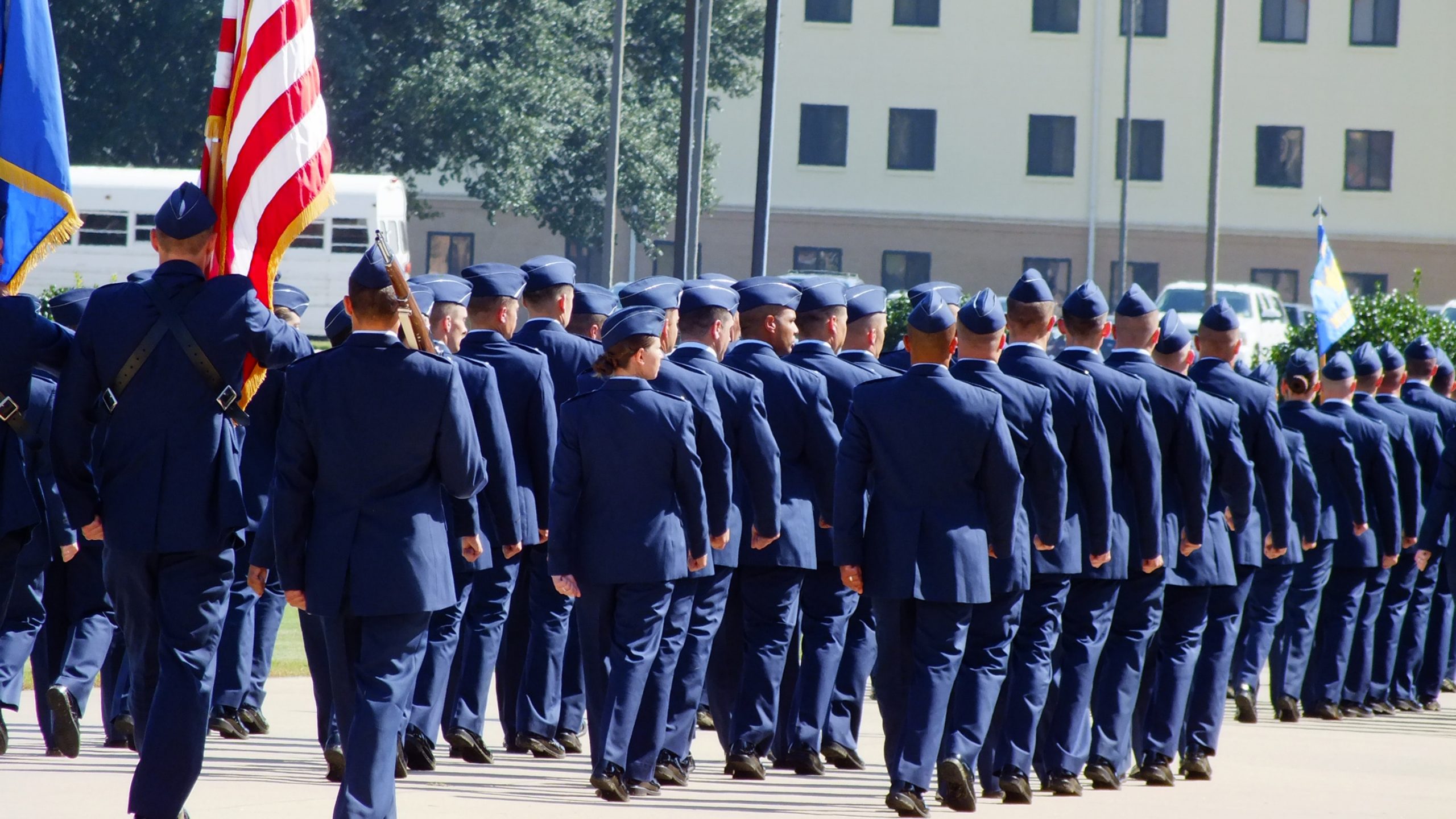
Matt Bush, FISM News
[elfsight_social_share_buttons id=”1″]
A recent survey of Air Force and Space Force personnel showed that more than 50% of respondents were victims of interpersonal violence (IPV) in the past.
According to the AP, of the 68,000 active duty personnel, reserves, and civilians who responded to the survey, 66 percent of women and 48 percent of men described cases of interpersonal violence. The report states that “in order to gain a holistic perspective, this study looked at IPV across the continuum of harm to include any use of power or force resulting in psychological or physical harm or that detracts from a culture of dignity and respect.”
The “continuum of harm” is thoroughly described in the report, but in general it refers to 81 behaviors of interest across a continuum. On that line, or continuum, behaviors on the left side are more innocuous, and they grow more severe as you move to the right.
Although there were some limitations to the survey, Air Force Secretary Frank Kendell said, “We clearly have work to do to ensure that interpersonal violence is prevented.” He added, “When it does occur, we need to provide needed support to victims and deal effectively with perpetrators of violence – of any type.”
The survey was provided to the entire Department of the Air Force (DAF) to include Active Duty, Reserve, Guard, and civilian members of the Air Force and Space Force, a total of 653,957 DAF members, of whom only about 10 percent responded.
While it is logical to assume that the results would skew high because those that had experienced IPV would be more likely to respond to the survey than those that did not, Secretary Kendall said, “Even if that’s all there is, it’s too much.”
Aside from the small sample sizes, there are other limitations. If a respondent reported one instance, even on the far left side of the continuum, they were included as a victim. Also, there is a subjective nature to the survey, as it is left to the respondent’s discretion whether an activity is an IPV or not.
Interestingly, the vast majority of the reported incidents were referred to as “bullying.” The report referenced several different incident types that it qualified as bullying: “The five most common behaviors indicated across all categories were, in decreasing order, that a coworker undermined or deliberately impeded the respondent’s work (bullying); a coworker spread malicious rumors, gossip, or innuendos about respondent (bullying); a coworker belittled respondent’s opinions (bullying); a coworker told lewd, sexual innuendos or jokes, or shared sexual stories (harassment); and a coworker excluded or isolated respondent socially (bullying).”
One of the most concerning things that came from the survey is how few victims sought help after experiencing IPV. Respondents cited distrust in the chain of command, lack of confidence in due process, career impact from reporting, and the military culture in general as the reasons they did not report IPV. While some of the incidents reported were minor in nature, when serious things happen, it is important that people feel safe to report without repercussion.
While it’s likely much less than 50% of the Air Force and Space Force personnel that have experienced reportable IPV incidents, as portrayed in the survey, there are enough serious IPV incidents that occur, along with a lack of trust in the reporting process, that it needs to be seriously looked into by the Air Force. Hopefully positive changes will occur in future as a result.
